With 15+ years of experience writing and editing fiction, I can teach you a lot about plot, characters, style, pacing, and more, but I didn’t invent most of the techniques that I teach. To be completely honest, I’m still honing many of those skills myself. To do that, I continue to read books on writing, and I regularly recommend them to my clients.
Even if you hire me to edit your manuscript or coach you through the process, having these books on hand is a good idea for your own continual education and growth. These are the books that have helped me and countless others develop their fiction-writing skills.
General Fiction Writing
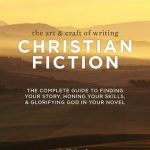 The Art & Craft of Writing Christian Fiction by Jeff Gerke
The Art & Craft of Writing Christian Fiction by Jeff Gerke
“There is skill involved in writing excellent … fiction. There is craftsmanship to be learned. And there are the long hours pounding away on a manuscript that, by the time you’re done with it, has you convinced it’s the worst piece of garbage ever penned by man.”
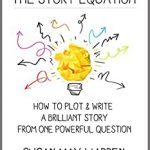 The Story Equation by Susan May Warren
The Story Equation by Susan May Warren
“You can plot your entire book by asking one powerful question, and then plugging it into an “equation” that makes your plot and characters come to life. You’ll learn how to create compelling characters, build the external and internal journey of your characters, create a theme, create story and scene tension, plot your novel organically, and even pitch and market your bestseller. All with one amazing question.”
 5 Editors Tackle the 12 Fatal Flaws of Fiction Writing by C.S. Lakin
5 Editors Tackle the 12 Fatal Flaws of Fiction Writing by C.S. Lakin
“5 Editors Tackle the Twelve Fatal Flaws of Fiction Writing demonstrates the deadly dozen pitfalls on the road to a strong story, along with revisions that show writers exactly how to avoid novel failure. No other writing craft book offers such detailed instruction in how to spot and remedy the major flaws of fiction writing.”
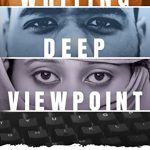 Writing Deep Viewpoint by Kathy Tyers
Writing Deep Viewpoint by Kathy Tyers
“Deep viewpoint can convince your readers that they have become your characters. This powerful writing-craft skill set includes showing instead of telling, maintaining story flow, attributing dialogue effectively, and showing characters interact with convincing antagonists and believable settings. Writing coach, editor, and New York Times best-selling author Kathy Tyers presents a short powerful set of writing-craft tools in Writing Deep Viewpoint.”
Plot/Structure
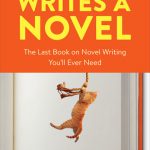 Save the Cat! Writes a Novel by Jessica Brody
Save the Cat! Writes a Novel by Jessica Brody
“[A] comprehensive story-structure guide for novelists that applies the famed Save the Cat! screenwriting methodology to the world of novel writing. Revealing the 15 “beats” (plot points) that comprise a successful story–from the opening image to the finale–this book lays out the Ten Story Genres (Monster in the House; Whydunit; Dude with a Problem) alongside quirky, original insights (Save the Cat; Shard of Glass) to help novelists craft a plot that will captivate–and a novel that will sell.”
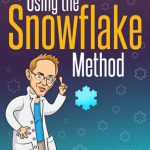 How to Write a Novel Using the Snowflake Method by Randy Ingermanson
How to Write a Novel Using the Snowflake Method by Randy Ingermanson
“How to Write a Novel Using the Snowflake Method is a “business parable”—a how-to guide written in story form. It’s zany. It’s over the top. It’s just plain fun. Most important, it’s effective, because it shows you, rather than telling you.”
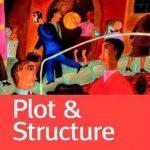 Plot and Structure by James Scott Bell
Plot and Structure by James Scott Bell
“How does plot influence story structure? What’s the difference between plotting for commercial and literary fiction? How do you revise a plot or structure that’s gone off course? With Write Great Fiction: Plot & Structure, you’ll discover the answers to these questions and more.”
Characterization
 Getting Into Character by Brandilyn Collins
Getting Into Character by Brandilyn Collins
“Want to bring characters to life on the page as vividly as fine actors do on the stage or screen? Getting Into Character will give you a whole new way of thinking about your writing. Drawing on the Method Acting theory that theater professionals have used for decades, this in-depth guide explains seven characterization techniques and adapts them for the novelist’s use.”
 Plot Versus Character by Jeff Gerke
Plot Versus Character by Jeff Gerke
“What’s more important to a story: a gripping plot or compelling characters? Literary-minded novelists argue in favor of character-based novels while commercial novelists argue in favor of plot-based stories, but the truth of the matter is this: The best fiction is rich in both. Enter Plot Versus Character. This hands-on guide to creating a well-rounded novel embraces both of these crucial story components.”
What are your favorite fiction-writing resources?
For more fiction-writing tips and advice, follow me on Facebook at Writing Now Editing, or sign up for my monthly newsletter and learn the easiest way to make a good impression with agents and publishers!
